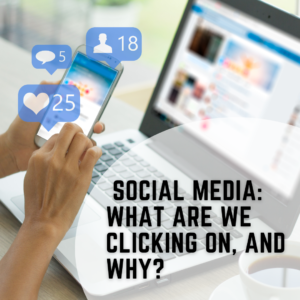 Scams that occur in Britain are often microcosms of those transpiring in the U.S. As a business ethics keynote speaker who has had the privilege of addressing audiences in the U.K. and the U.S., I know from experience that while expressions and phrases may change from London to New London and Dublin, Ireland to Dublin, Ohio, the net results of fraud are identical and often, tragic.
Scams that occur in Britain are often microcosms of those transpiring in the U.S. As a business ethics keynote speaker who has had the privilege of addressing audiences in the U.K. and the U.S., I know from experience that while expressions and phrases may change from London to New London and Dublin, Ireland to Dublin, Ohio, the net results of fraud are identical and often, tragic.
Social media
The British paper, The Telegraph, has reported (August 16, 2023) that online scams on Facebook, WhatsApp and Instagram, currently account for one in six of all crimes recorded in Britain. As a business ethics keynote speaker and business ethics consultant and book author, let me assure everyone that those who fall prey are not “just” octogenarians hitting the wrong keys but often clicking on inappropriate links in tens of thousands of companies.
In the first 9-months of 2022, in excess of one-million in the U.K. fell victim to online fraud, or about 18-percent of all crimes. By far, Meta (the former Facebook) is the biggest culprit. Not surprising, in the U.K. and the U.S. the technology firms have come under attack from government agencies.
Said Anthony Browne (a Member of Parliament) who is in charge of social media oversight:
“The huge tech firms – the richest, most technologically advanced companies that have ever existed – must protect their users. I am determined to make sure they put systems in place to stop scams.”
Not surprising, the scams are fake investment opportunities or so-called “romance scams.”
The response of Facebook has been tepid. They have donated £3m (about $3.8million) to Citizens Advice a “UK Scams Action” project. Said a Meta representative:
“We recognize the important role we must play in tackling this industry-wide issue. We don’t want anyone to fall victim to these criminals, which is why we have systems to block scams and financial services advertisers now have to be FCA [Financial Conduct Authority] accountable.”
The advice Facebook gives out is rather a “we throw our hands up in the air approach.” In truth, there is little they can do to stop fraud at that point in the fraud continuum. Financial fraud schemes are about greed and romance frauds are about loneliness and desperation. I might add as a business ethics speaker that there is a strong third-category of good-natured giving; the domain of bogus GoFundMe pages and fraudulent charities of all manners and shapes.
Common sense ethics
By and large, all frauds (even the digital) are based on three factors: opportunity, need and rationalization. I usually talk in terms of what the fraudster wants, but it does work both ways. Why does someone click on a link that will surely lead to fraud?
In brief, most people seize opportunity when they are by themselves (at home or in an office or cubicle). Their need may come from loneliness or greed as I mentioned above, but on numerous occasions, greed came out of anger toward a supervisor or knowingly sharing company information. Rationalization extends from a simple, depressed, “Who cares what I do?” to “The company has plenty of money.”
My point is this aspect of the fraud discussion is that social media is frequently the unethical culprit, but all too often, the person engaging the email or post is naïve or a willing participant. It is clearly a two-way street.
Social media must be blamed but due to a lack of ethical training, psychological or sociological issues and an unfortunate disconnect between choices and numerous consequences, those who have lost funds and valuable information are also liable.
The common-sense approach is training and awareness. Though surprising, digital fraud is often perpetrated on Gen-Z and Millennials ahead of Boomers and Gen-X. Familiarity does breed contempt.
As a business ethics keynote speaker and business ethics consultant and book author, I know the best way to create awareness, is to be trained to be aware. The best way to stamp out online fraud is to be qualified in awareness to see it for exactly what it is.
LEAVE YOUR COMMENTS!


